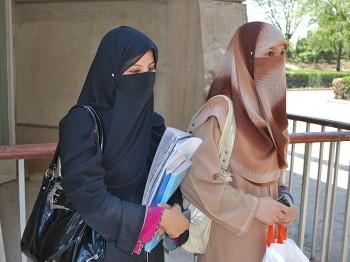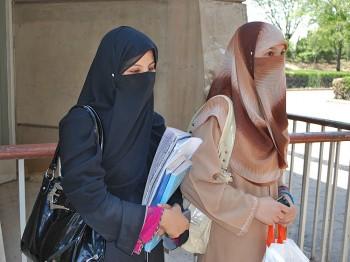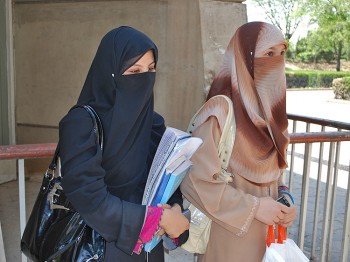Pakistani Women’s Views on the Burqa
France’s ban of the burqa and niqab in April, which set cultural tensions simmering across Europe, strikes issues close to home for Pakistani women, many are forced to veil themselves, and many are increasingly choosing to veil themselves.

DRESS OF CHOICE: Sania Shah (R), walks with a friend at a local college in Islamabad. Shah says she wears a burqa out of choice, because it makes her feel secure. Masooma Haq/The Epoch Times
|Updated:






